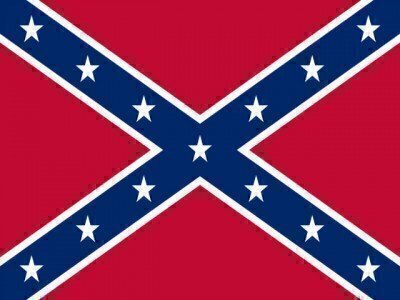One of the more interesting cases in front of the Supreme Court gets its day in front of the Justices on Monday, as lawyers will argue about Texas’ right to ban a vehicle license plate that features the Confederate flag.
 The case is called Walker III V. Texas Division, Sons Of Confederate Veterans, Inc., and the Court will settle a dispute about the boundaries between government speech and free speech.
The case is called Walker III V. Texas Division, Sons Of Confederate Veterans, Inc., and the Court will settle a dispute about the boundaries between government speech and free speech.
The Constitution’s First Amendment free speech clause limits government restrictions on private free speech, and it also allows the government to speak for itself. Two recently debated questions are how far can the government go in expressing a viewpoint that isn’t neutral? And do such opinions restrict free speech made by private individuals or groups?
The Texas case came about in 2009, when Texas Sons of Confederate Veterans (or SCV) submitted an application to the state’s specialty license program for a plate design that featured the Confederate battle flag.
The Texas Department of Motor Vehicle Board reviews applications and asks for public comments on prospective plates in the program. There were plenty of comments about the Confederate battle flag design. The Board voted to decline the application, citing a policy that it “may refuse to create a new specialty license plate if the design might be offensive to any member of the public.”
The SCV sued, claiming a violation of its First Amendment free speech rights and a 14th Amendment violation, and that Texas used a government-held viewpoint to discriminate against the SCV. Texas countered with the argument that it had government speech rights and the ability to choose which messages appeared on state-issued license plates.
In two lower court fights, one side won each round. A similar issue was considered in other federal courts, where the verdicts were split.
At the heart of the Texas case is the nature of the license plates. Texas argues that as government property, the state has the right to control the language on the plates, and citizens have the right to display (or not display) the vanity plates.
The SCV says that the state, by starting the specialty license plate program, has made it a venue for private speech. Using a “reasonable test” theory, it argues that any person seeing the plate would know that the vehicle owner made a decision to display it, to express their own personal viewpoint.
Two prior Supreme Court cases will play a prominent role in the deliberations. In the 1977 decision in Wooley v. Maynard, the Court said that the state of New Hampshire couldn’t force residents to display a license plate with the state motto: Live Free or Die. It considered the license plate, as part of the car, as private property, and said the state couldn’t force citizens to "use their private property as a 'mobile billboard' for the State's ideological message." But the Wooley decision didn’t tackle the issue of government speech head on.
And in the Pleasant Grove City v. Summum decision from 2009, a unanimous court said that the Pleasant Grove, Utah government didn’t have to display a monument from Summum, a religious organization, in a public park that also contained a 10 Commandments monument.
But in a concurring opinion, Justice David Souter spoke about the reasonable person test, and “whether a reasonable and fully informed observer would understand the expression to be government speech, as distinct from private speech the government chooses to oblige.” This theory will be tested in the Walker V. Texas Division deliberations.
So the Court is considering two questions.
First, does the specialty license plate program constitute private speech under the First Amendment or is it government speech?
And if the license plate program is private speech, is the rejection of the Confederate Flag plate an impermissible “viewpoint discrimination” or is it a reasonable “content discrimination”?
The Courts have decided in the past that the government can restrict free-speech content, but only in a very narrow way and if there is a compelling state interest. In this case, the argument from Texas will be that it can control all messages on specialty license plates, regardless of their viewpoint, through its government speech powers. It also will argue that if the plates represent private speech, it can't be forced to take part in a debate "regarding the proper understanding or significance of the Confederate battle flag."
And the SCV will point to the Texas DMV Board policy that it can reject designs that “might be offensive to any member of the public” as clear discrimination against almost any private viewpoint.
There is a lot more to this very interesting case, and we’ll have more analysis and discussion later this week.
Scott Bomboy is the editor in chief of the National Constitution Center.






